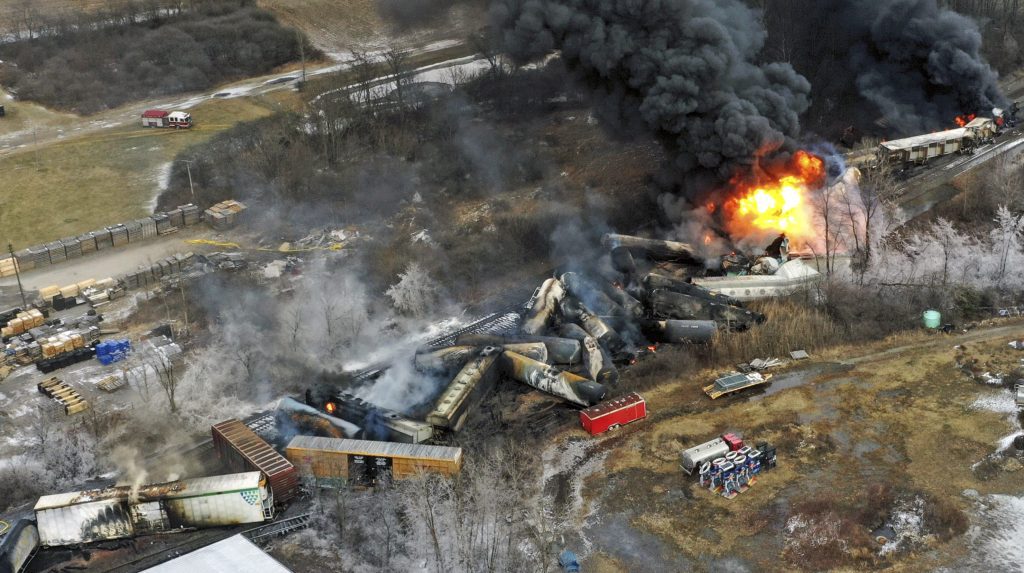A federal judge has given permission for a lawsuit by East Palestine residents to move forward. The lawsuit accuses Norfolk Southern of negligence regarding a train derailment that released toxic chemicals in East Palestine, Ohio last year. determined Wednesday.
Judge Benita Yalonda Pearson rejected the railroad’s arguments that claims in the suit were protected by federal law regulating railroads, instead ruling that the case focuses on activity that is not covered by protections.
The suit This lawsuit represents around 500,000 people and businesses near the eastern Ohio town where nearly 40 railcars derailed last year. Some of the derailed railcars contained toxic vinyl chloride. The railroad chose to perform a controlled explosion to make the wreck safe, which spread the chemical into the air and local water supply.
In Senate testimony earlier this month, National Transportation Safety Board (NTSB) Chair Jennifer Homendy said the controlled explosion was unnecessary, and alleged Norfolk Southern ignored onsite experts who said vinyl chloride release was unnecessary.
“It was stabilized well, well before the vent and burn. Many hours before,” Homendy said, referring to dangerous temperatures in railcars. “There was no justification to do a vent and burn”
The plaintiffs are seeking monetary damages for the contamination and repairs, as well as compensation for lost business and health risks.
They claim the derailment was caused by lack of maintenance, causing a wheel bearing on one of the cars to overheat, light on fire and break, as well as institutional negligence.
Norfolk Southern has spent over $1.1 billion in the cleanup process, including a home value reimbursement program and other community investments.
The railroad also faces other suits related to the derailment from the federal government, local governments and the company’s shareholders.
A federal judge in a separate case last week ruled that Norfolk Southern alone should be responsible for paying cleanup costs from the wreck. Environmental Protection Agency officials have estimated that the cleanup should be finished later this year.









